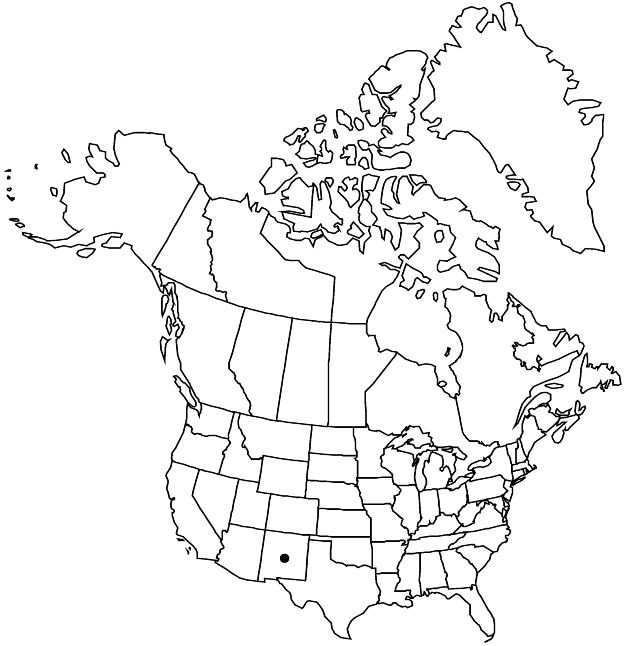Mentzelia conspicua
Sida 18: 819, fig. 1. 1999.
Plants biennial, candelabra-form. Stems solitary, erect, straight; branches distal, distal longest, antrorse, straight; hairy. Leaves: blade 69–195 × 11.6–55.7 mm, widest intersinus distance 1.3–2.5(–3.5) mm; proximal oblanceolate or elliptic, margins pinnatisect, lobes 16–26, slightly antrorse or perpendicular to leaf axis, 5.1–15.1 mm; distal elliptic, base not clasping, margins pinnatisect, lobes 10–20, slightly antrorse or perpendicular to leaf axis, 6.2–12.3(–22.5) mm; abaxial surface with needlelike and occasionally simple grappling-hook trichomes, adaxial surface with needlelike trichomes. Bracts: margins entire. Flowers: petals golden yellow, 30–42.2 × 5.7–10.8 mm, apex acute, glabrous abaxially; stamens golden yellow, 5 outermost petaloid, filaments narrowly spatulate, slightly clawed, 27–37.4 × 4.8–9.7 mm, without anthers, second whorl with anthers; anthers straight after dehiscence, epidermis smooth; styles 24–32.4 mm. Capsules cylindric, 15–26 × 5–7.2 mm, base tapering to rounded, not longitudinally ridged. Seeds: coat anticlinal cell walls sinuous, papillae 8–12 per cell. 2n = 20.
Phenology: Flowering Jun–Sep.
Habitat: Slopes, pinyon pine and juniper woodlands, grasslands, sparsely vegetated soils composed of red and brown loam.
Elevation: 1800–2400 m.
Distribution

N.Mex.
Discussion
Mentzelia conspicua is known from Rio Arriba, Sandoval, and Torrance counties.
Selected References
None.